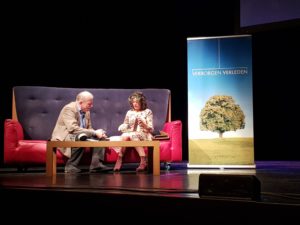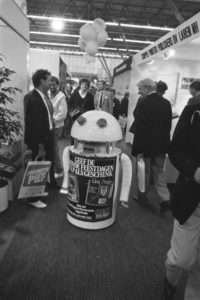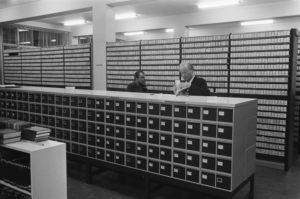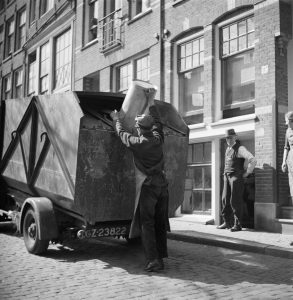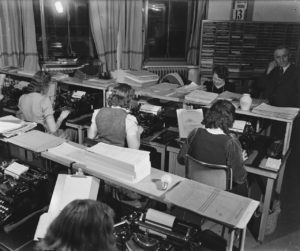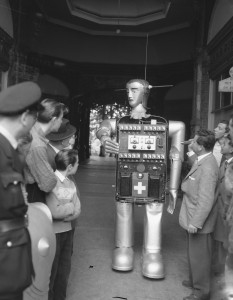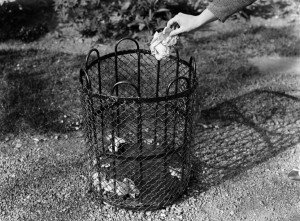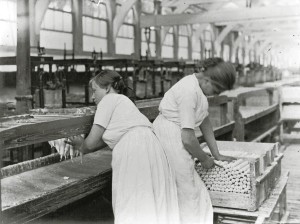"National Archivist wants to store emails and WhatsApp messages," was the headline of the Volkskrant newspaper on 2 January after an interview with National Archivist Marens Engelhard. The records that became public that day were all made of paper, but going forward, digital correspondence also needs to be preserved. Emails of civil servants working on important files—even the WhatsApp messages about the acquisition of Rembrandt paintings. Article 1 of the Archive Law defines archival records … [Read more...]
Column – Virtual
At the Famillement event last June, I noticed once more how nice it is to talk genealogy in person rather than online. To meet new people, and where you can feel the presence of a good speaker in the farthest corner of the room. Like the Famillement, most genealogy educational opportunities in the Netherlands are on-site. We go to an archive for a palaeography course, or go to a meeting of a genealogical society to hear a presentation about a type of source. The topic is often selected to … [Read more...]
Column – Robot genealogist
For years, we've heard about arm chair genealogists; researchers who do their family trees from home without going to repositories. The suggestion that this can't be a good researcher is no longer valid, considering the wide variety of sources that are available online. New is the robot genealogist, a computer program that analyzes sources and draws its own conclusions. The hints that genealogy programs and websites give about possibly relevant sources can be seen as a first incarnation of … [Read more...]
Column – Unnecessary
Many archival collections in the Netherlands have been cataloged in finding aids according to the principles of the nineteenth-century archivists Feith, Fruin, and Muller. Their Handleiding voor het ordenen en beschrijven van archieven [Manual for orderning and describing of archives] from 1898 states that a finding aid should merely provide an overview of the records, but should not discuss their contents. A finding aid should not make consulting the records unnecessary. A finding aid … [Read more...]
Column – Fake News and Alternative Facts
You see it everywhere online: fake news. Sensational stories, written to draw attention and gain clicks for ads. Fake news about the presidential candidates may even have influenced the US elections. Even in genealogy, it is often the less reliable information that draws our attention. Complete family trees can be found online, but may not be based on solid research. Indexes are easier to access than original records, but may have mistakes. And because of copyright restrictions, genealogy … [Read more...]
Column – Destroyed
"How many of you want your work destroyed after you're gone?" This question was asked by Thomas W. Jones during a lecture. The crowd laughed; of course that was nobody's intention. Still, this will be the reality for most of us. We've invested a lot in our research; in time but also in money. Books, subscriptions, memberships, travel costs, copies or scans we ordered: most of us have spent thousands of euros/dollars. If we don't make arrangements, not much will be left in a hundred … [Read more...]
Column – The Gap
Archives have the legal task to keep records in good, orderly and accessible condition. But what the Archiefwet [Archive Law] considers accessible does not always match users' expectations. In the most basic form of access, users can consult the records in the reading room. An increasing number of records can also be found online by clicking through to the scans from the finding aid. That research process is not much different from the paper situation, except you do not need to travel. Only a … [Read more...]
Column – The future of Genealogy
This year, I am celebrating my twenty-fifth anniversary as a genealogist. During this time, we saw the change from paper to digital. Will we see as many changes in the next twenty-five years? Here are my predictions for genealogy in 2041. In the future, it will not be possible to visit an archive in person anymore. The most popular sources are available online. The originals are stored in a central repository; separate archives have been eliminated to save costs. If you want to … [Read more...]
Column: Receipt
The receipt of the Teeven deal had been preserved: we could reconstruct how much money had been paid; even fifteen years after the fact. The drama that followed demonstrated that archiving is more than just preserving things well; it is also a matter of being able to find information again.* In the Netherlands, the national government has a digital repository, a joint service where archives and government agencies can store their digital information. This system has been built over the last … [Read more...]
Column – Reuse
Since 18 July 2015, the Netherlands has a law to regulate the reuse of government information. The law is intended to give an impulse to the economy if government information is used as fuel for new products and services. The law requires archives to cooperate in the reuse of government information. They can only charge the marginal costs for providing copies of the information. Costs that have been made to create the information may not be recouped. Digitized records fall within the … [Read more...]

